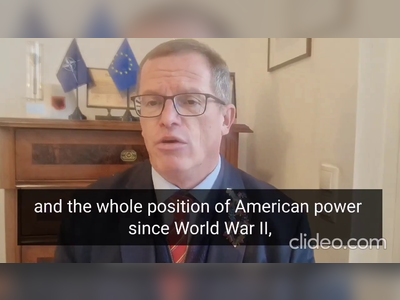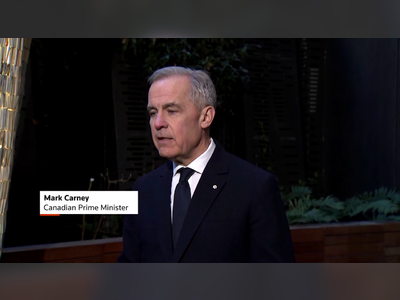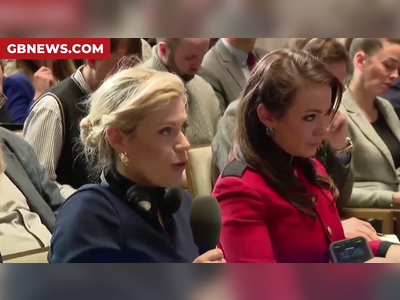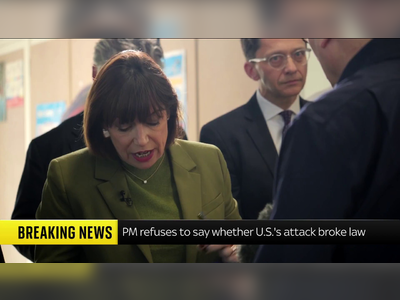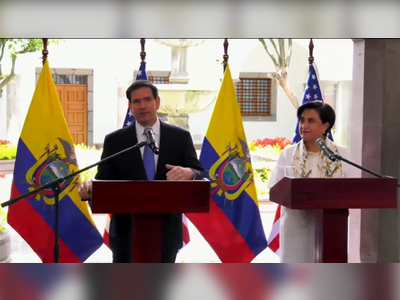Scholz Criticizes Trump's Greenland Comments: 'Borders Must Not Be Altered by Force'
German Chancellor Olaf Scholz cautions against potential US territorial ambitions, emphasizing the inviolability of national borders.
In a swiftly convened press conference held in Berlin, German Chancellor Olaf Scholz issued a pointed admonition aimed at future US President Donald Trump, who recently suggested American territorial aspirations over regions like Greenland.
With a noticeable urgency, Scholz underscored that 'borders must not be moved by force', addressing rumors suggesting Trump's administration might consider forceful annexations.
The hasty assembly of the press and the lack of an initially specified topic added a layer of anticipation to Scholz's remarks.
His comments came in reaction to Trump's reiteration of his interest in the Panama Canal and Greenland, shocking numerous international observers by not ruling out potential military options.
Trump reportedly hinted that 'something might need to be done', casting uncertainty over future US foreign policy intentions.
Scholz, who stated he had discussed the issue with several European leaders and the EU President, relayed a collective sense of bewilderment and concern about these US declarations.
He invoked the framework of international law and historical agreements like the Helsinki Final Act of 1975, which confirmed the principle of border inviolability during the Cold War—a consensus formed by Western nations along with the then Eastern Bloc and the United States alongside the Soviet Union.
Referring to recent European security challenges, Scholz drew parallels to Russia's actions in Ukraine, condemning the violation of Ukraine's sovereignty and integrity.
He noted Germany's response, which included enhancing its military readiness and increasing defense spending.
Within this context, the Chancellor emphasized the significance of maintaining the post-World War II peace order in Europe and globally.
Scholz reiterated that the principle of territorial integrity is not only a foundational element of international law but also a vital pillar of Western values.
His remarks reflect broader European unease, amid similar sentiments voiced by NATO allies concerning transatlantic relations and the alliance's role in collective defense.
The Chancellor concluded by stressing the necessity of united action and coherent defense strategies among European and NATO partners in response to ongoing and emerging threats.
This, he said, will involve precise threat assessments and cooperative planning among allied nations to adequately sustain defense capabilities.
Scholz's comments were designed to reaffirm Europe's commitment to peace while implicitly advising prudence in international territorial disputes.
With a noticeable urgency, Scholz underscored that 'borders must not be moved by force', addressing rumors suggesting Trump's administration might consider forceful annexations.
The hasty assembly of the press and the lack of an initially specified topic added a layer of anticipation to Scholz's remarks.
His comments came in reaction to Trump's reiteration of his interest in the Panama Canal and Greenland, shocking numerous international observers by not ruling out potential military options.
Trump reportedly hinted that 'something might need to be done', casting uncertainty over future US foreign policy intentions.
Scholz, who stated he had discussed the issue with several European leaders and the EU President, relayed a collective sense of bewilderment and concern about these US declarations.
He invoked the framework of international law and historical agreements like the Helsinki Final Act of 1975, which confirmed the principle of border inviolability during the Cold War—a consensus formed by Western nations along with the then Eastern Bloc and the United States alongside the Soviet Union.
Referring to recent European security challenges, Scholz drew parallels to Russia's actions in Ukraine, condemning the violation of Ukraine's sovereignty and integrity.
He noted Germany's response, which included enhancing its military readiness and increasing defense spending.
Within this context, the Chancellor emphasized the significance of maintaining the post-World War II peace order in Europe and globally.
Scholz reiterated that the principle of territorial integrity is not only a foundational element of international law but also a vital pillar of Western values.
His remarks reflect broader European unease, amid similar sentiments voiced by NATO allies concerning transatlantic relations and the alliance's role in collective defense.
The Chancellor concluded by stressing the necessity of united action and coherent defense strategies among European and NATO partners in response to ongoing and emerging threats.
This, he said, will involve precise threat assessments and cooperative planning among allied nations to adequately sustain defense capabilities.
Scholz's comments were designed to reaffirm Europe's commitment to peace while implicitly advising prudence in international territorial disputes.
Translation:
Translated by AI
AI Disclaimer: An advanced artificial intelligence (AI) system generated the content of this page on its own. This innovative technology conducts extensive research from a variety of reliable sources, performs rigorous fact-checking and verification, cleans up and balances biased or manipulated content, and presents a minimal factual summary that is just enough yet essential for you to function as an informed and educated citizen. Please keep in mind, however, that this system is an evolving technology, and as a result, the article may contain accidental inaccuracies or errors. We urge you to help us improve our site by reporting any inaccuracies you find using the "Contact Us" link at the bottom of this page. Your helpful feedback helps us improve our system and deliver more precise content. When you find an article of interest here, please look for the full and extensive coverage of this topic in traditional news sources, as they are written by professional journalists that we try to support, not replace. We appreciate your understanding and assistance.


